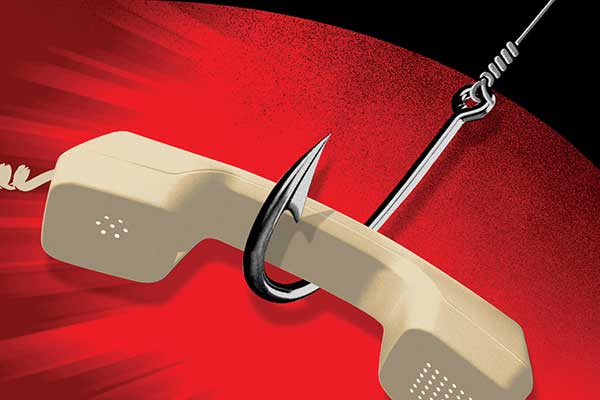The Safford Police Department has taken numerous reports from citizens regarding calls from the IRS. Some of these citizens have fallen victim to the IRS scam. It’s important to know that the IRS will not call you out of the blue. If the IRS has business with you, they will first notify you by mail. There are also a host of other phone and Internet scams that prey on unsuspecting victims.
There are ways you can protect yourself from legitimate telemarketers but the only way to protect yourself from phone and Internet scams is to be certain of who you’re dealing with before making any transaction.
To prevent legitimate telemarketers from contacting you, register your phone number on the National Do Not Call Register. The Federal Trade Commission (FTC) created the Do Not Call Registry to stop unwanted telemarketing calls. You can register your home or cell phone number either online at www.donotcall.gov or by using the FTC’s toll number (888) 382-1222, TTY: (866) 290-4236. You must call from the number you wish to register. Registration is free and never expires.
Unfortunately, the Do Not Call list does not protect you from fraudulent telemarketers. They ignore telemarketing regulations and hide their true calling number.
Unscrupulous Telemarketing Tactics:
- Use a fake caller identification number that appears to be local, a personal call or from a business that you recognized and doesn’t work when you call back.
- A high-pressure sales approach, urging you to “act now” or the offer won’t be available later.
- Falsely inform you that the marketer is a veteran, disabled, born-again Christian, or has some other trait to convince you he or she is trustworthy.
- Offer you something that sounds too good to be true, such as a “no-risk” investment” or the opportunity to make lots of income from home, with little effort on your part.
- Tells you they need to put some money in your bank account.
- Pretend to be licensed, certified, working for your credit card company or working for the government.
- Asking for your credit card or checking account numbers or other personal financial information to verify your eligibility or check your available credit, before you have agreed to make a purchase and then charging you without your agreement.
- Asking you to send money right away, through a wire service or overnight delivery. Fraudulent telemarketers will sometimes offer to pick up the money and the signed contract from your home.
What you can do to avoid being scammed
- Check out a business by searching online for complaints about the business or call the Better Business Bureau to find out if there have been complaints.
- Check with a financial advisor, accountant or knowledgeable friend or relative who can help you research whether a business is reputable or a purchase or investment is a good decision before you make a purchase.
- Remember that most work-at-home business opportunities never make money for the purchasers, only for the sellers. If it were that easy or profitable, the telemarketers would do the work-at-home business themselves.
- Keep your financial information to yourself. Never give out credit card, checking or savings account information to anyone who calls you, as it is not difficult for someone with this data to draft money from your account.
- Ask the sales agent to mail you information about their product or services before you decide to buy. Legitimate companies should be happy to mail you a contract to review or a brochure about their product before you give them any payment information.
- Place your name on the national Do Not Call List.
- Remember, if it sounds too good to be true, it probably is.
- Hang up. A telemarketer hos no right to your time or your money.)
For more information, or if you believe you have been a victim of fraud, contact the Attorney General’s office in Phoenix (800) 352-8431. Consumers can also file complaints online by visiting the Attorney General’s website: www.azag.gov.









